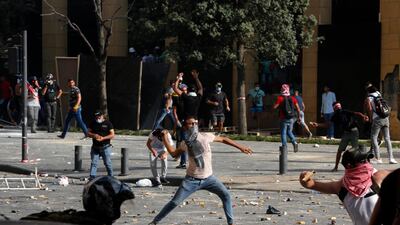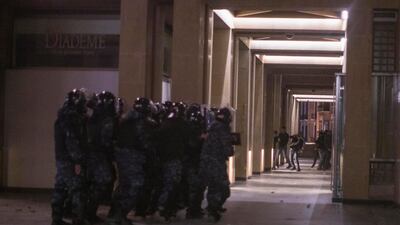Lebanon eased banking secrecy laws for a year to allow a forensic audit of the Central Bank and various state institutions.
Legal experts, however, fear the process could still be derailed.
Legislators on Monday passed a bill waiving banking secrecy with regards to the accounts of the Central Bank, ministries and government agencies weeks after Parliament recommended an audit of all state accounts in response to a letter by President Michel Aoun.
The non-binding recommendation followed the withdrawal of auditor Alvarez & Marsal, given the task by government to conduct a forensic audit of Banque du Liban (BDL), a prerequisite for much-needed international financial aid for Lebanon.
But legal experts say the ratification of the recommendation into law is unlikely to pave the way for an audit any time soon owing to political paralysis.
The appointment of a new auditor necessitates a fully functioning government, said Nizar Saghieh, a lawyer who heads The Legal Agenda, a Beirut-based research and advocacy organisation.
Lebanon has been without a fully functioning Cabinet since the deadly explosion that ripped through Beirut port in August, killing more than 200 people and forcing the government’s resignation.
The caretaker Cabinet has been paralysed with little progress made in terms of enacting reforms that the international community is demanding in exchange for financial support.
Mr Saghieh fears the approved legal deadline could be too short to complete the audit.
“A Cabinet has first to be formed, and then it has to agree on the appointment of a new auditor who would have to complete the audit within the specified period, Mr Saghieh said.
In November, Alvarez & Marsal ended their contract with the government, citing the "insufficient provision of information" after BDL governor Riad Salameh refused to hand over all the requested documents, which he said would breach banking secrecy laws.
The withdrawal of the consultancy firm fuelled public anger, which has been building since the unravelling of the financial crisis that robbed many Lebanese of their life savings.
Mr Salameh previously offered to provide auditors with information on government accounts but maintained that offering details relating to the accounts of private banks or financial institutions would break banking laws.
BDL’s operations have long been shrouded in secrecy, prompting claims that the institution is facilitating corruption and cronyism in the country.
In a recent report, The Wall Street Journal said the US was considering sanctions against the Central Bank and senior BDL officials over links to Hezbollah.
The mere threat of sanctions could cause foreign banks to cut ties with Lebanese commercial banks, further deepening Lebanon's economic crisis, which caused the national currency to plunge by more than 80 per cent against the dollar.






















